10 Best AI Tools for Small Businesses You Can't Ignore in 2024
Do you think there are not just enough hours in a day to complete your business work? You’re not alone. I’d be hard-pressed to...
Day by day, the recruiting and staffing industry has been becoming more and more competitive. It is a tuff job for the recruiter to give their best performance with lots of constraints. As a recruiter, you have to submit your candidates within an hour for urgent positions. If you will not submit the right candidate immediately, you will not get the success or you may end up with duplicate CV submission.
In case of urgent positions or you want to win the game, it is very important for the recruiter that they submit the candidate as soon as possible.
To source the right candidate there could be multiple ways like following,
1. Job board posting & search
2. Social media posting & search
3. Local candidate database search
4. Run a referral program
Out of various techniques of sourcing, the fastest one is to search the candidates in the local database. In other techniques, you have to spend some time and you have to wait for the responses of the candidate. Due to this waiting period, sometimes the job gets closed or you may end up with a submission which is already done by some other recruiters.
The following are some of the advanced database search techniques recruiters may use to refine the result.
The keyword search is pretty old but still one of the most effective techniques to find the relevant CVs from the candidate database. You can define your keywords into three categories.
- Mandatory keywords which have to be there in the candidate profile
- Optional keywords which is like good to have in the candidate profile
- Exclude keywords which you don't want to have in the candidate profile
You can try the best possible combinations to narrow down your best matching result.
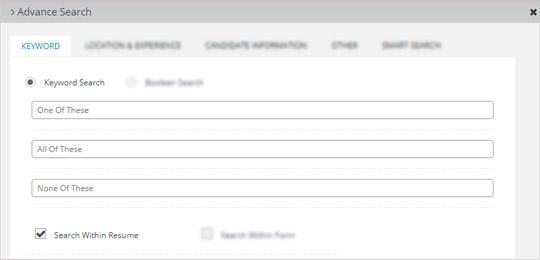
A boolean query is a more powerful option compared to the keyword search. You should gain some knowledge of query writing. You have the unlimited possibilities to club several conditions to narrow down your matching result. While writing the boolean query, you can use AND, OR, NOT operators with parenthesis.
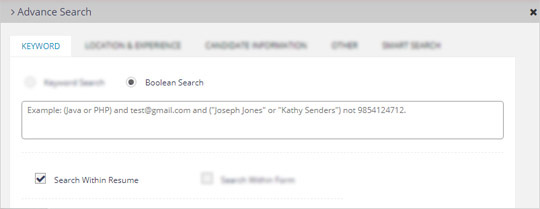
We all are well aware of Google and how it works. Generally, people used to spell out the wrong words while firing the search query in the Google search engine. But Google is so smart that it corrects the spelling and give you the best matching results all the time. This is what call Fuzzy Search. Fuzzy Search allows you to grab the result in searching the keywords with the spelling mistake.
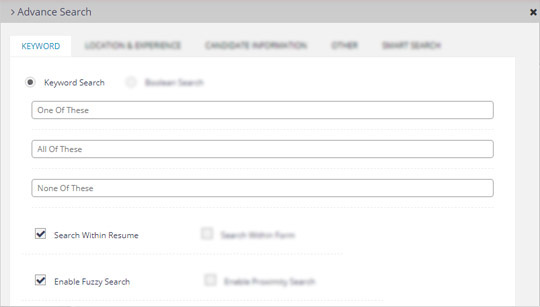
This is one of the latest trends in hiring nowadays. Especially, when you are talking about technical recruiting. We generally find or use the synonyms of the skills while searching or defining what to get. Contextual search/ Semantic search is based on the skills and synonyms of the skills.
For eg.,"Quality Assurance" is the keyword, but we generally call it a "QA" or "Testing". This way you can define certain synonyms of the keyword into the system. Whenever you type "QA" to search, all the CVs that have "Quality Assurance" and "Testing" as a keyword in the CV will be also fetched. In a way, it is a more intelligent searching technique instead of just plain keyword matching.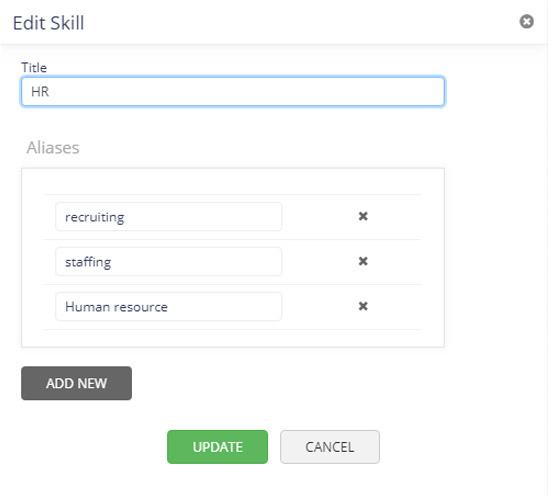
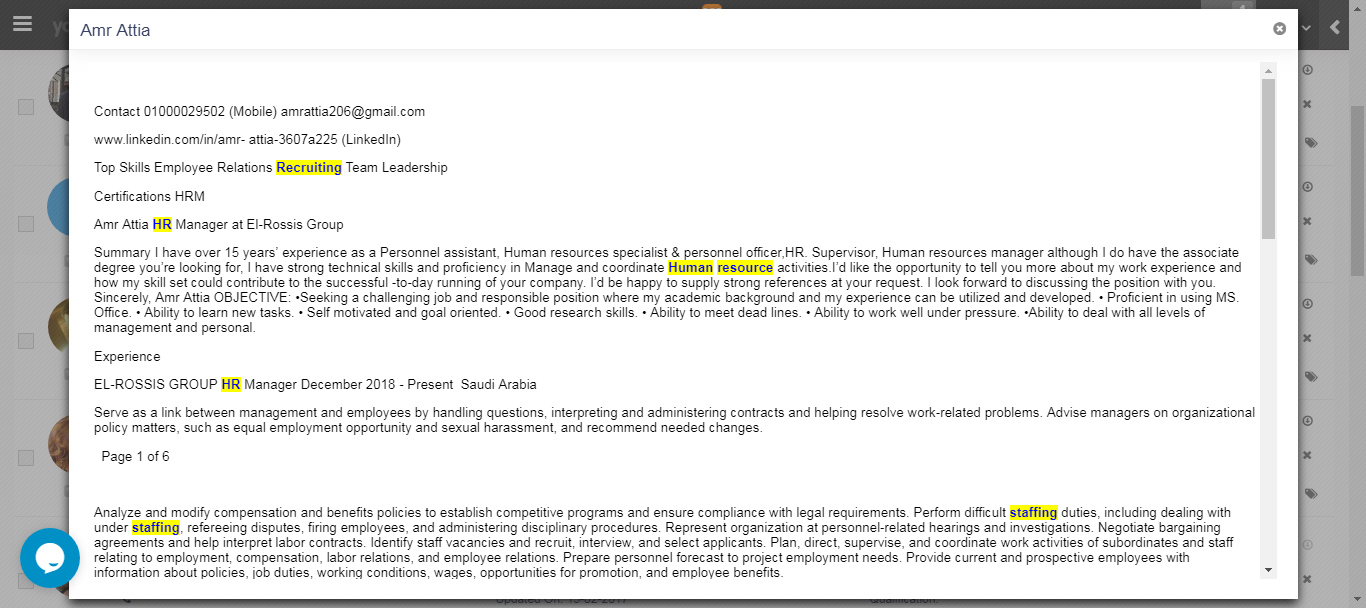
While filling in many positions, the customer's preference is to have local candidates. The radius search allows you to search within the area you entered in the search box. For eg., you can search the candidates within 3 miles to 300 miles from the company location. This will help you to filter the relevant candidates based on the location.
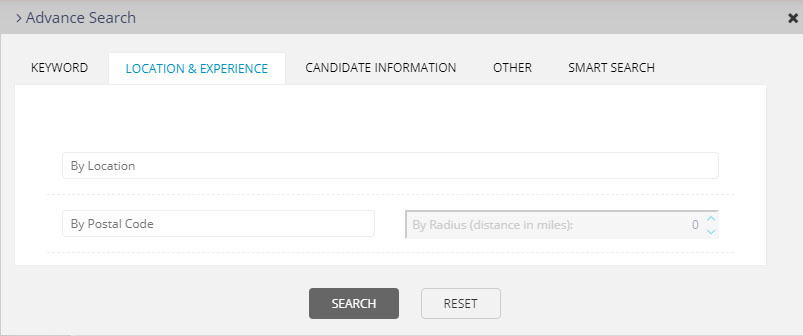
Keyword proximity can also be called a distance proximity search. You can define certain proximity or distance between the keywords you have entered. For eg., You enables the proximity search for 3 keywords, and you entered the keyword like "Business Consultant", you will find all the CVs that have the keywords like "Business Development Consultant", "Business Management Consultant", "Business Operations Consultant" etc. Again this is also an intelligent approach compared to plain text matching as you are allowing certain keyword to be in between your entered keywords.
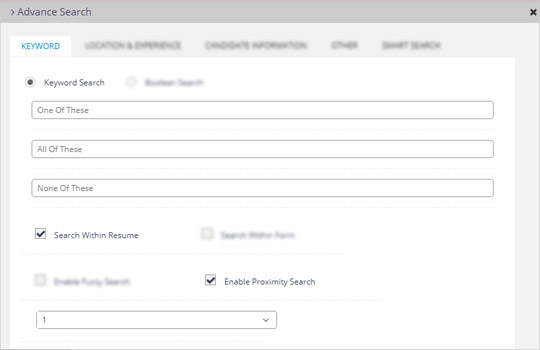
Talent Pool is basically a segmentation of your database into different categories. You might aware of the folders if you are using the Windows System. You can create certain folders based on technology or skill and organize candidate CVs in such folders. Talent pool also has the same philosophy where you can create different talent pools based on designation, skills, industry, etc. The benefit of talent pool while the search is great because you don't need to search candidates across the database but you select a particular talent pool and get the refined result. For example, you create a "Banking" talent pool so whenever you come across the Banking related position, you simply go and search in the Banking talent pool only.
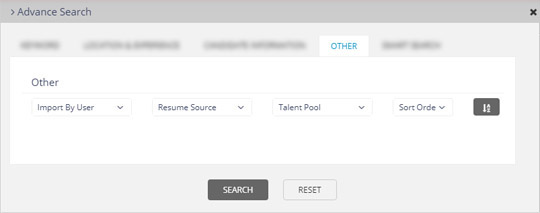
As a recruiter, the most difficult job of yours is to update the CVs of candidates according to their experience. When you search for a candidate and if the experience value is not updated, you will not find the matching candidate. To overcome this challenge, the projected experience could be the best feature. When you search candidate based on projected experience, the system is going to calculate the experience automatically based on the day CV imported and the experience value was there on the date of import. For example, you imported the CV of Alex in 2015 and his experience was 8 years at that time. If you search keyword today (in 2019), the system will calculate projected experience value like 8 years + 4 years (2019 - 205) = 13 years.
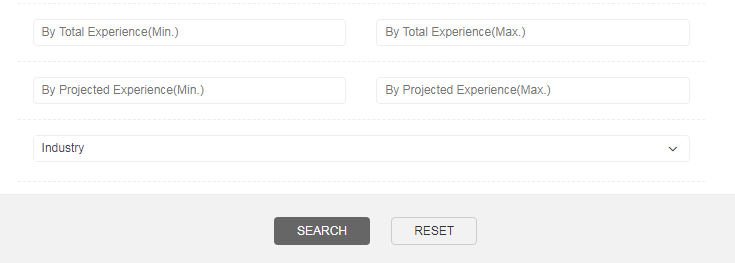
Whenever you go for the candidate search you will have two types of candidates.
- Candidates who actively looking for the job change
- Candidates who are not looking for the job change
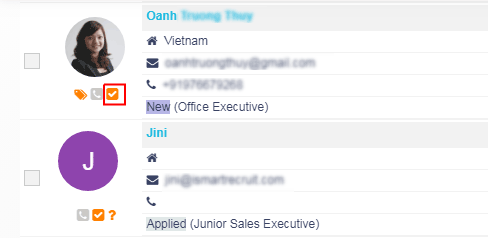
It is always the best idea to target candidates who have been looking for a job change.
Now the important question here is how we can be more proactive to include all the CVs in your CV database so you will have an ample amount of CVs when you go for a search.
Generally, when you get applications against the job posting over the job board, you will receive the CV in your mailbox. Due to lots of activities, the recruiter generally forgets to import CV into the ATS or recruiting system. This is a big loss in the long run as you paid lots of money to the job board to get suitable candidates.
If you wish to overcome this challenge, you can use the mailbox plugin which helps you to import the CVs from your mailbox in just one click. There is no need to back and forth between the mailbox and the recruiting system. It will simplify the work of the recruiter to a great extent and you can grow your own CV database in the long run.

When you keen on adding candidates into the system, the difficult job for the recruiter is to update the candidate information periodically. For example, you imported a candidate 6 years back and you don't have the updated information today, you may end up with the wrong search result. To accomplish the same, it's a very tedious and time-consuming job for the recruiter.
To resolve this challenge, you can use the feature of automation where the system sends the automated email to the candidate and allows the candidate to update the profile on their own.
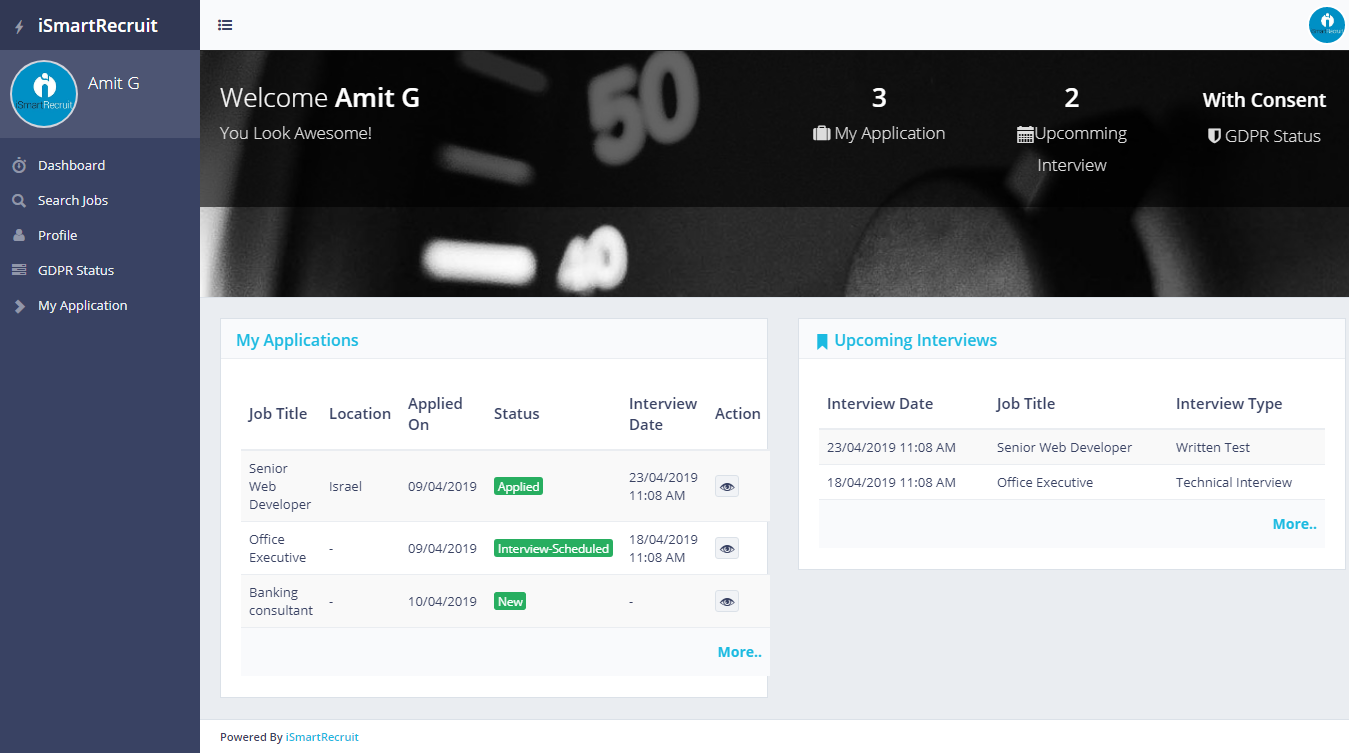
Also, you can set up a self-service portal for a candidate where the candidate can do log and start profile updates on their own. These are the automated mechanism of recruiting software which can help you to reduce day to day work of the recruiters.
I hope this blog will help you to search for your candidates more effectively with your ATS and Recruiting software. If you find any queries related to this blog, you can write to us at [email protected] or you can ask for a Free demo too.
Demos are a great, fast way to learn about iSmartRecruit.
Connect with us now to learn more!
